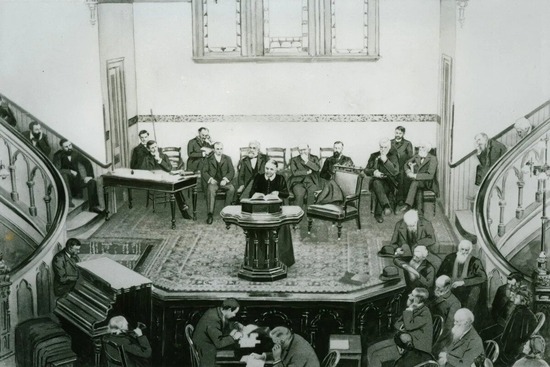Who Were Ellen White’s Children?
Ellen White, who is likely the most well-known co-founder of the Seventh-day Adventist Church, had four children with her husband, James: Henry Nichols, James Edson, William Clarence, and John Herbert. Henry died from pneumonia at the age of 16, and John only lived for 3 months. But both Edson and William—Willie for short—became involved in the work of the Adventist Church.
Being the children of a woman with a prophetic calling from God had its blessings and its challenges.
In this overview, we’ll look at the highlights of the lives of Ellen White’s sons during her many years of ministry, as well as the ways each of them decided to serve Jesus Christ:
- Henry Nichols White
- James Edson White
- William Clarence White
- John Herbert White
- Lessons from their lives
Let’s begin with Henry, their firstborn.
Henry Nichols White (1847-1863)
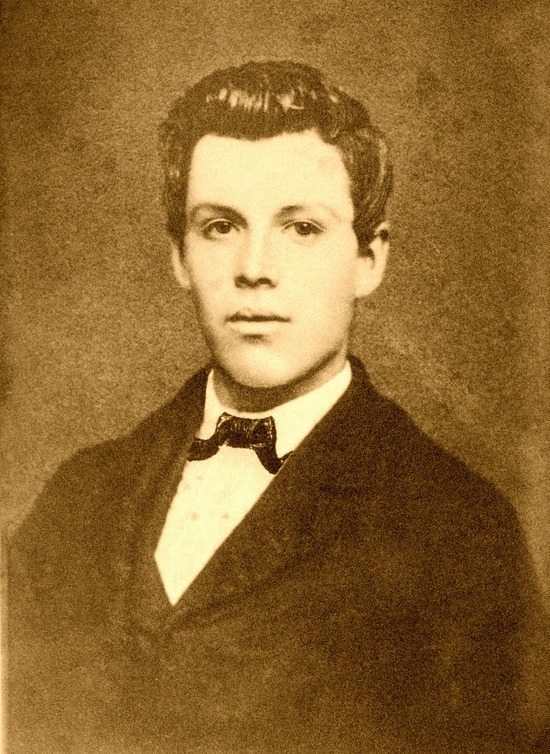
Ellen and James White had their first child, Henry, on August 26, 1847—less than a year after their marriage. He was born in Gorham, Maine.
Due to their constant ministry-related travels, Ellen White had to make a very tough decision when Henry was one year old. She was called to many places, but she knew the travel wouldn’t be easy for such a young boy. So she and James ended up entrusting him in the care of close family friends, the Howland family. He lived in their home until he was six years old, with his parents keeping up regular communcation with him as much as they could.
Henry grew into an intelligent young man. He earnestly pursued his studies—and may have spent some late nights doing so!1
He also had a love for singing, and in her writings, Ellen White called him “our sweet singer.” He also learned how to play the melodeon, an instrument similar to an organ.2
Henry attended the Battle Creek public school, and in his teens, he went to work at the Review and Herald, the Adventist printing office that his father had established.3
All seemed to be well.
But one day, after swimming in the river, Henry caught a cold that quickly turned into pneumonia.4
A doctor came and treated him with the conventional “drugs” of the time. But day by day, he grew worse.
Henry spent time in bed thinking through his life and asking God and his family for forgiveness. He “often requested his parents to pray for him, not that he might get well, but that he might feel his acceptance with God every moment.”5
Peace came over him, and he held onto the hope of the resurrection morning when Jesus would return. His last words before dying on December 8, 1863, were “Heaven is sweet.” Though he died in Topsham, Maine, he was buried in Battle Creek next to his baby brother, John Herbert White.
Henry’s life may have been cut short, but his legacy lives on through the advice he gave to young people on his deathbed. We’ll explore that further down.
James Edson White (1849-1928)
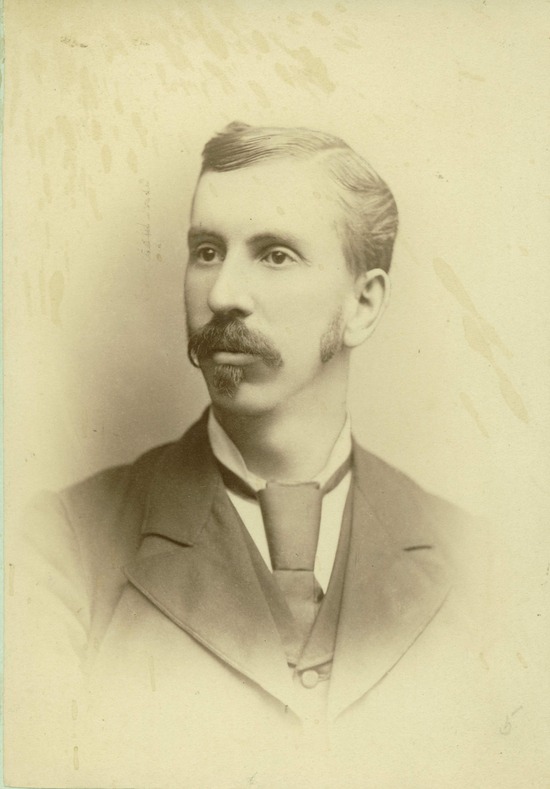
James Edson White, known as Edson, came into the world on July 28, 1849, while the White family was in Rocky Hill, Massachusetts.
Because of his parents’ travels, Edson spent his early years in the care of Clarissa Bonfoey, who would later become one of the nannies in the White home.6
Edson’s early schooling happened at the Battle Creek public school. In his teen years, he also gained a practical education working at the Review and Herald with his brother. By age 15, he was a full-time employee there and well-trained in the printing business. He would finish off his education at Battle Creek College.
Edson also had a fiery personality and a spark of rebelliousness. Arthur Spalding, a Seventh-day Adventist educator, writes that he was “resourceful, energetic, inventive, and he had a good deal of executive ability; but he was sometimes flighty and erratic.”7
And being the son of Ellen and James White seemed to have been a pressure he shied away from. At times, he intentionally went against his parents’ beliefs with careless behavior, buying expensive clothing, and reading “unwholesome” fiction storybooks.8 His noncompliance created a strain in his relationship with his parents, particularly his father.
In 1870, Edson married Emma McDearmon at 21 years old—though his parents seemed to have felt he wasn’t quite ready because of his lack of self-control and maturity.9
At the time, he was involved in the church’s publishing houses and Sabbath School work.
But despite his abilities, he struggled with managing finances and taking responsibility for his mistakes.
For example, while he oversaw the Pacific Press publishing house in California, it went into a financial crisis. Ellen White responded by counseling him to allow Willie to take its leadership. When Edson refused, she strongly suggested that he resign from his position.10
Edson’s struggles came to a head when, in 1893, he was working at a printing business in Chicago and dealing with more debt. And in a letter to his mother he admitted, “I am not at all religiously inclined.”11
Receiving this message, his mother wrote him a letter, pleading with him to turn to God.
Her pleas and prayers made a difference.
Not long after, Edson found long-searched-for freedom in a personal relationship with Jesus. And with this freedom came a new opportunity.
In an abandoned room in the Review and Herald publishing house, Edson discovered counsels his mother had written about reaching out to African Americans in the southern United States.12
Reading this counsel led him to build a steamboat called the Morning Star and sail it down the Mississippi River. This boat became the base for ministry and publishing work in the South, where he helped start churches and schools.
He had found his unique place in God’s work, and even found joy in his work.
And his efforts would eventually result in the Southern Missionary Society and the Southern Publishing Association.
He died on May 30, 1928, in Otsego, Michigan. Though he did not leave behind any biological children, he left behind a legacy of children in the faith. As Adventist theologian Denis Fortin writes,
“Many Black Adventist ministers and teachers traced their first contacts with Seventh-day Adventists to the Morning Star and the schools that its crew founded.”13
William Clarence White (1854–1937)
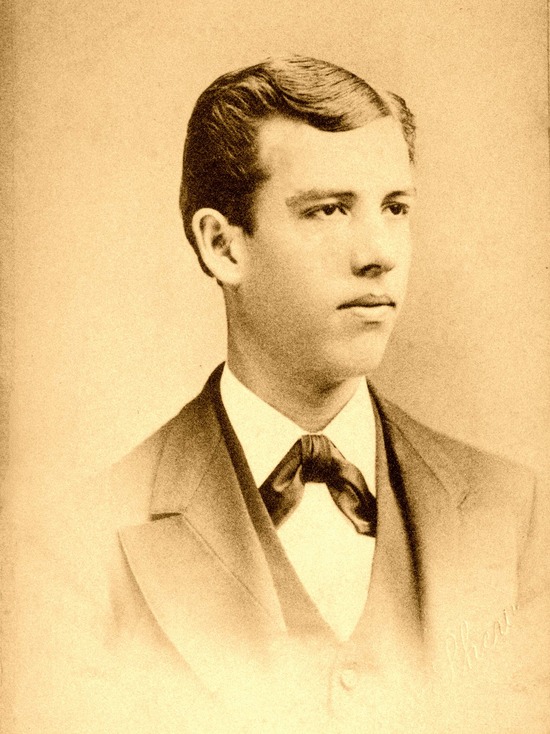
William Clarence White, known as Willie by his mother, was born on August 29, 1854, in Rochester, New York.
By this time, Ellen and James White had their own home, though they continued to travel and leave their children in the care of nannies while they were away. But sometimes, they would take Willie with them on their travels.
Willie was a contrast to his older brother Edson. He had a much gentler personality. Adventist historian Jerry Moon describes him as “frugal, conservative, hard working, dependable, and seemed generally to comply with his parents’ wishes.”14
Because he was very similar to his mother, he had a close relationship with her. And early on, she saw spiritual maturity and great promise in him.15
As the younger of his brothers, Willie would tag along with Henry and Edson when they went and worked at the Review and Herald office. It wasn’t long before he was working alongside them and did so into his teens.
Willie’s education consisted of attending public schools in both Battle Creek and Greenville. Later on, he attended Battle Creek College. In 1872, he also took a six-month course in medicine at Dr. R. T. Trall’s Hygeo-Therapeutic College in New York.16
His goal?
To continue to medical school at the University of Michigan.
But his life ended up taking a different turn—into church ministry.17
Already quite involved with church leadership, the change was quite natural. That year, he went and helped with the Signs of the Times magazine in Oakland, California. His responsibilities grew quickly and included:
- Managing the Pacific Press Publishing Association
- Working as the treasurer for the California conference of the Adventist Church
- Joining the General Conference committee—a role he’d hold throughout most of his lifetime.
In 1876, Willie married Mary Kelsey, and they would have two daughters, Ella and Mabel.
After being involved with publishing, Sabbath School, and health work in Battle Creek, Willie and Mary returned to the West where they continued their ministry.
Following the death of his father in 1881, Willie took a more active role in assisting his mother. He and Mary traveled to Europe with her to help with the administrative and publishing work of the church.
While there, Mary developed tuberculosis and died in 1890 at 33 years of age.18
Willie coped with this tragedy by immersing himself in his work.
By this point, Willie’s mother had come to depend heavily on him. He was her “counselor and helper”19—someone who understood her work better than anyone else and someone with whom she could bounce ideas and process her thoughts. He also served as her editorial assistant, publishing manager, and travel companion.
Their next trip found him in Australia, spending nine years there and once again taking administrative roles in the church.
While there, Willie met May Lacey, whom he married on May 9, 1895. The couple had five children: Henry and Herbert (twins), Evelyn Grace, Arthur, and Francis.
After his mother died, Willie became the director of the Ellen G. White Estate, taking an active part in preserving Ellen White’s books and other writings. He published ten compilations of his mother’s writings and an index for all her works. He also published a series of 64 articles called “Sketches and Memories of James and Ellen G. White” in the Review and Herald.20
He died on September 1, 1937, in St. Helena, California, and was buried with his parents, brothers, and first wife in Oak Hill Cemetery in Battle Creek, Michigan.21
Willie left behind a rich legacy of helping the Adventist Church grow and supporting the pivotal work of his mother, Ellen White.
John Herbert White (1860)
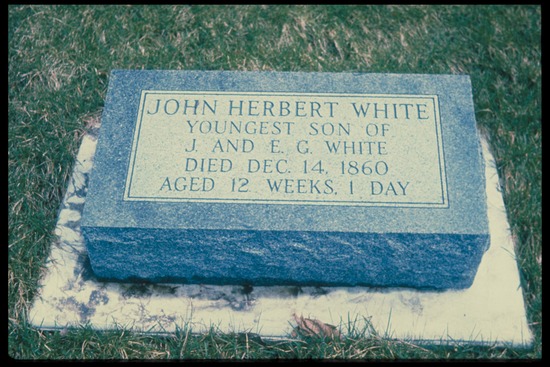
John Herbert White, the last of the White children, was born on September 20, 1860, in Battle Creek, Michigan.
The family’s delight was crushed, however, when at three months he came down with erysipelas, a contagious skin disease.
Ellen White writes of John’s illness:
“My dear babe was a great sufferer. Twenty-four days and nights we anxiously watched over him, using all the remedies we could for his recovery, and earnestly presenting his case to the Lord. At times I could not control my feelings as I witnessed his sufferings. Much of my time was spent in tears, and humble supplication to God.”22
He died on December 14, 1860, leaving a hole in the hearts of his parents.23 They buried him in Oak Hill Cemetery in Battle Creek.
What we can learn from Ellen White’s children
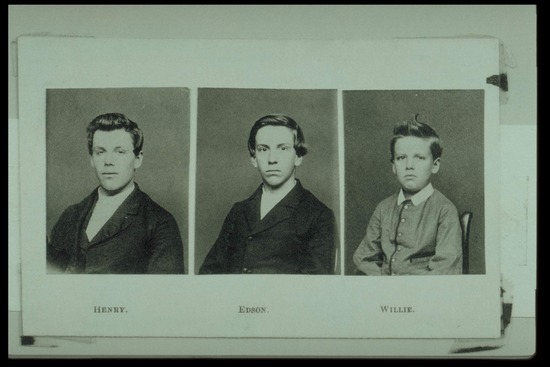
The lives of Ellen White’s children teach some important lessons for young people and adults alike. Through them, we see that Ellen White, though living out her special calling from God, was also human and had to grow as a parent. She made mistakes and struggled as a parent, leaving us her experiences to learn from.
Let’s look at some of those lessons:
Henry’s last words
While on his deathbed, 16-year-old Henry White struggled with some regrets. He wished he’d been more faithful in his walk with God and in following the advice of his parents.
From his own experience, he left some important wisdom for young people:
“I would appeal to all my young friends, not to let the pleasures or accomplishments of the world eclipse the loveliness of the Saviour. Remember that the deathbed is a poor place to prepare for an inheritance in the second life. Spend the best of your days in serving the Lord. Farewell.”24
Still today, those words encourage young people to live with a purpose to seek God and make a difference in the lives of others.
Ellen White’s growth in parenting
Being a messenger for God didn’t make Ellen White perfect. Like the prophets in the Bible, she was human and had to grow in knowledge and experience. Her parenting is an example of this development.
She was a loving parent who cared deeply about her children, making her absence from her children during her travels very difficult. While away, she wrote many letters to them with motherly advice to be faithful to God.25
However, out of fear for her children’s salvation, she felt she may have leaned toward being too strict—a mistake God helped her to recognize:
“We have been in danger of expecting our children to have a more perfect experience than their age warrants us to expect.”26
She also realized she had made a regrettable mistake in comparing the impulsive and flighty Edson with the gentle and obedient Willie—something that very well may have created resentment in Edson.
But as Ellen White realized her deficiencies as a parent, she was open to becoming who God wanted her to be.
And just as God never gave up on her, she never gave up on her children—especially Edson.27
Edson’s struggles
As we saw in our brief look at his life, Edson wrestled with his parents’ value system and religion. His life illustrates the fact that having godly parents doesn’t mean a child will automatically choose to be a Christian or live a virtuous life. Everyone ultimately has to make a personal decision about what they believe and how they want to (or need to) live.
But even as Edson struggled to find his identity and made many mistakes along the way, his mother never gave up on him. She continued to encourage him, pray for him, and, sometimes, give him tough love.
And eventually, her efforts bore fruit in his own surrender to God and the unique ministry he pioneered.
Ellen White’s children give us another perspective on her heart

Though Ellen White left a legacy through her writings, she also left a legacy through her children and the ministry they carried on after her death—particularly Willie’s integral involvement with the church and his mother’s writings; and Edson’s ministry among African Americans in the South.
Though the White family faced struggles, these young men both eventually embraced the ministry of their mother and the teachings of Adventism, throwing themselves wholeheartedly into the movement.
The Adventist Church owes them gratitude for all they spearheaded and accomplished in their lifetimes.
But through them, we also get a different perspective of Ellen White: the tender mother, the parent that longed for her children to love God but was also learning as she went—just like any of us.
Ellen White’s children help us to see the human side of her and the ways she developed as she applied the things she taught.
We can also learn from this family that God has a unique purpose for everyone, and sometimes it’s not what we expect, or even think we want, for our children. But in letting God lead, and nurturing the unique creation that is every child, we open our hearts up to possibilities we may never have dreamed of.
Related Articles
- Patten, Adelia P., “Brief Narrative of the Life, Experience, and Last Sickness of Henry N. White,” An Appeal to the Youth, p. 20 [↵]
- White, Ellen, Testimonies for the Church, vol. 1, p. 103 [↵]
- Moon, Jerry, William Clarence (W.C.) White: His Relationship to Ellen G. White and Her Work, p. 7 [↵]
- Fortin and Moon, The Ellen G. White Encyclopedia, p. 1275 [↵]
- Ibid. [↵]
- White, Ellen, Life Sketches of Ellen G. White, p. 131 [↵]
- Arthur Whitefield Spalding, Origin and History of Seventh-day Adventists, vol. 2, p. 344. Quoted in Moon, p. 44 [↵]
- Moon, p. 50 [↵]
- Douglass, Herbert, Messenger of the Lord, p. 114-115 [↵]
- Moon, p. 27; White, Ellen G., “Letter 3a, 1880,” Letters and Manuscripts, vol. 3 [↵]
- White, A. L., Ellen G. White: The Australian Years: 1891–1900, vol. 4, p. 94 [↵]
- “Edson White: His Conversion and Work,” Lineagejourney.com [↵]
- Fortin and Moon, p. 1281 [↵]
- Moon, p. 50 [↵]
- Ibid., p. 57 [↵]
- Ibid., p. 16 [↵]
- Ibid., p. 20 [↵]
- Ibid., p. 23 [↵]
- Ibid., p. 113 [↵]
- Douglass, p. 48 [↵]
- Moon, p. 456 [↵]
- White, Ellen, Spiritual Gifts, vol. 2, p. 296 [↵]
- White, A. L., Ellen G. White: The Early Years: 1827–1862, vol. 1, p. 431 [↵]
- White, Ellen, Life Sketches of James White and Ellen G. White, p. 347 [↵]
- Patten, An Appeal to the Youth, pp. 18–20 [↵]
- White, Ellen, Manuscript 8, 1862. [↵]
- Douglass, p. 50 [↵]
Questions about Adventists? Ask here!
Find answers to your questions about Seventh-day Adventists
More Answers
The Health Benefits of Fresh Air You Should Know About
The Health Benefits of Fresh Air You Should Know About“When you can’t breathe, nothing else matters,” the American Lung Association tells us. And while that’s true, the kind of air you’re breathing will determine the health benefits you experience. Breathing fresh...
What Do Seventh-day Adventists Choose to Eat?
What Do Seventh-day Adventists Choose to Eat?Food blogs overwhelm the internet; food fads are all the rage; and copycat and healthy versions of food are the subject of many a get-together. Eating—and eating the best way—is a big deal. And everybody has a different...
10 Incredible Ways Sunlight Can Improve Your Health
10 Incredible Ways Sunlight Can Improve Your HealthAre you concerned about sunlight’s negative effects? You might be the one who lathers on the sunscreen and covers up when you go outside. Or maybe you avoid being outside as much as possible. You might be surprised,...
Why Is Water So Important?
Why Is Water So Important?We all know that water is a substance we can’t live without. It quenches our thirst and keeps us hydrated on the inside. And it’s necessary for hygiene and cleansing on the outside too. But did you know that the cleansing properties of water...
Ellen White’s Writings and the Adventist Health Message
Seventh-day Adventists are known for their emphasis on healthy living. And Ellen G. White was a significant influence in the development of this priority and practice among Adventists.
Health Clinics
Ellen White and Adventist Healthcare—Ahead of Their Time Medical care in the mid-1800s was primitive, to say the least. Basic concepts we take for granted—such as proper handwashing or recognizing the dangers of bloodletting—were nonexistent. And doctors often had...
What Did Ellen White Teach about Vegetarianism?
What Did Ellen White Teach about Vegetarianism?One thing you might have heard about Seventh-day Adventists is their emphasis on a vegetarian lifestyle. If you’re wondering why that is, it goes back to our church’s humble beginnings: As Adventists studied the Bible,...
How Ellen White’s Teachings Can Improve Your Health
How Ellen White’s Teachings Can Improve Your Health Healthcare in the nineteenth century was said to leave “more disease than it took away” with its use of bloodletting and “medicines” like mercury and arsenic.1 As people questioned these methods, new approaches...
Change Your Perspective on Life with These 5 Mindsets
5 Biblical Mindsets to Change Your Life for the Better Sometimes, life is just plain hard. There’s no way around it. So would thinking about things differently really change anything? Our perspective on life, and everything it throws at us, affects more than we’re...
Bible Promises for When You’re Worried or Fearful
Bible Promises for When You’re Worried or Fearful The Bible is full of beautiful promises that can comfort us in a variety of situations. They can give us hope when we are hopeless, make us feel grateful for God’s love, and comfort us when we’re grieving or suffering....
12 Practical Ways to Overcome Worry
12 Practical Ways to Overcome Worry DISCLAIMER: This content is for informational purposes only. It does not constitute any professional medical advice and is not intended as a substitute for professional mental health therapy. It’s easy to get stuck in a cycle of...
How the Bible Talks About Worry, Fear, and Anxiety
How the Bible Talks About Worry, Fear, and Anxiety Worry and fear are the ingredients of anxiety. It’s easy to see how the world isn’t perfect—and the anticipation of a bad event or experience (that may or may not even happen) can end up draining the peace and...
How to Calm Anxious Thoughts, Using the Bible
How to Calm Anxious Thoughts, Using the Bible You were expecting a phone call from your daughter half an hour ago, and she still hasn’t called. She’s also not answering your calls. You feel your heart thumping as your thoughts race: What if she’s been in a car...
What You Should Know About the Adventist Health Studies
What You Should Know About the Adventist Health StudiesYou may have heard that Seventh-day Adventists care about health. But what you may not know is that Adventists have been the subjects of long-term research into lifestyle and health. Since 1958, researchers from...
Benefits of Sunlight
Yes, There Are Health Benefits of SunlightDespite the bad reputation it’s gotten, sunlight is generally associated with positivity, as shown by songs like “You Are My Sunshine,” or phrases that refer to delightful people as having a “sunny disposition.” There’s a...
Why Your Body Needs Rest for Optimal Health
Why Your Body Needs Rest for Optimal HealthStruggling to think straight? Wondering why you can’t remember that important tidbit you heard earlier today? Feeling like your emotions are about to explode? These are just some of the symptoms that can reveal your need for...
The Seventh-day Adventist Diet: One of Our Key Longevity Secrets
The Seventh-day Adventist Diet: One of Our Key Longevity SecretsOats, avocados, lentils, tofu—probably not what you first think of in a standard American diet. But if you show up at the home of an Adventist, chances are you may be served one of these staples. Out of a...
Why You Need Fresh Air
Why You Need Fresh Air“When you can’t breathe, nothing else matters,” the American Lung Association tells us. We couldn’t agree more! Breathing in clean air is an essential part of caring for our bodies, which God has given us. Together with other health principles,...
Sabbath Meal
Everything You Need to Know About Sabbath MealsFor Seventh-day Adventists, sharing a Sabbath meal with friends and family is one of the most special and memorable parts of the Sabbath. That’s why we want to share with you all about Sabbath meals and why they’re such a...
Adventists and Healthy Living
Adventists and Healthy LivingWhat’s the Adventist “Health Message” All About? One thing Seventh-day Adventists are known for is their emphasis on living healthy lives. Since our bodies are living temples of the Holy Spirit (1 Corinthians 6:19, 20), we strive to stay...
Water’s Importance—Physical Benefits and Spiritual Applications
Water’s Importance—Physical Benefits and Spiritual Applications We all know that water is a substance we can’t live without. Not only does it quench our thirst and keep us hydrated from the inside, but it’s necessary for hygiene and cleansing on the outside as well....
How Important is a “Day of Rest?”
How Important is a “Day of Rest?” Why God Created a Day for Downtime by Martin Casper Do you ever experience the feeling of complete overload? Do you feel like the only way you can get ahead is by slamming it 24/7? I hear these types of comments more and more...
7 Reasons Why a Day of Rest is Important
7 Reasons Why a Day of Rest is ImportantWe live in a fast-paced world. It seems as if success is measured in how much you can do in a short amount of time. (Extra points for the service or product that is available 24/7). The idea that we will be more successful if we...
How do Adventists choose what to eat?
How do Adventists choose what to eat?Every day, parents go through the ritual of getting their kids to eat what is healthy and good while trying to steer them away from what can hinder the growth of their developing bodies. Nutritionists work with their clients to...
How Can I Have a Better Marriage?
Is it possible to have a happy marriage?
How do Adventists make movie and music choices?
How do Adventists make movie and music choices?Cinema has come a long way since the first clips of motion pictures came to light in 1878. As the decades rolled on, film and music producers have created rivers of movies and albums for the masses. Today, watching movies...
Why are many Adventists Vegetarian?
Why are many Adventists Vegetarian?The diet intended for man is outlined in Genesis 1:29, “And God said, ‘See, I have given you every herb that yields seed which is on the face of all the earth, and every tree whose fruit yields seed; to you it shall be for food.’”...
Didn’t find your answer? Ask us!
We understand your concern of having questions but not knowing who to ask—we’ve felt it ourselves. When you’re ready to learn more about Adventists, send us a question! We know a thing or two about Adventists.

